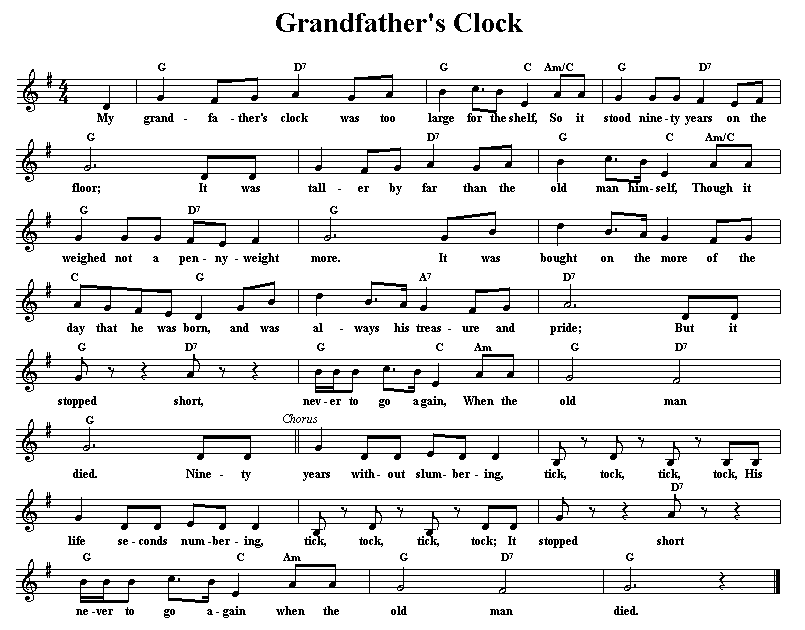Grandfather's Clock 
My grandfather's clock was too large for the shelf,
So it stood ninety years on the floor.
It was taller by far than the old man himself,
Though it weighed not a penny-weight more.
It was bought on the more of the day that he was born,
And was always his treasure and pride.
But is stopped short never to go again,
When the old man died.
Ninety years without slumbering.
Tick, tock, tick, tock,
His life seconds numbering,
Tick, tock, tick, tock;
It stopped short, never to go again,
When the old man died.
In watching its pendulum swing to and fro.
Many hours had he spent while a boy;
And in childhood and manhood, the clock seemed to know,
And to share both his grief and his joy;p
For it struck twenty-four when he entered at the door,
With a blooming and beautiful bride;
But it stopped short never to go again,
When the old man died. Chorus.
My grandfather said that of those he could lure,
Not a servant so faithful he found;
For it wasted no time, and had but one desire,
At the close of each wwek, to be wound;
And it kept in its place, not a frown upon its face,
And its hands never hung by its side;
But it stopped short never to go again
When the old man died. Chorus.
It rang an alarm in the dead of the night,
An alarm that, for years, had been dumb;
And we knew that his spirit was puming it flight,
That his hour of departure had come.
Still the clock kept the time, with a soft and muffled chime,
As we silently stood by his side.
But is stopped whore never to go again
When the old man died. Chorus.
Abolishonist and inventor Henry Clay Work wrote this song in 1876.
It was performed in minstrel shows of the time - and remains a popular sentimental
ballad to this day. Many of Work's other songs deal with Abolitionist
and Prohibitionist themes. This beautifully crafted song tells the story
of one man's mortal bond with his treasured floor clock, (which we call a
"grandfather's clock" to this day).



